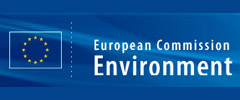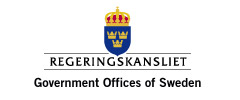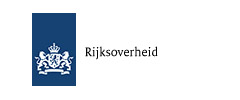German Members of the Parliament show great interest in the topic of endocrine disrupters
WECF has initiated a parliamentary event to provide an impetus to regulate endocrine disrupting chemicals (EDCs)
29.01.2016 |

A parliamentary dialogue has been initiated by WECF in cooperation with PAN Germany on the topic of “Hormonal effective substances: the invisible danger”.
A parliamentary dialogue has been initiated by WECF in cooperation with PAN Germany on the topic of “Hormonal effective substances: the invisible danger”. On January 27, 2016, 40 participants from the German Parliament and representatives from the scientific-, NGO-, and media sector were invited to the German Parliamentary Society in Berlin to discuss issues related to endocrine disrupters. The aim of the event was to bring forth the above issue and organize national political discussion defining the starting point where Germany can play a leading part in the environment and consumer protection and make itself a principle player at the European level for strict regulation on endocrine disrupters. The event took place under the patronage of Elvira Drobinski-Weiß, Social Democratic Party of Germany (SPD), Member of Parliament and a consumer policy spokesperson.
In her opening speech Johanna Hausmann, moderator of the event, pointed out that there is a great need of information on the issue of EDCs. The public, including politicians and media, has little knowledge about the potential dangers of endocrine disrupting substances and how to protect themselves. The more people know about these issues, the bigger the public pressure will be on decision-makers to implement and enhance legal regulations.
MP Ursula Schulte, a member of the Social Democratic Party of Germany (SPD), Member of Parliament, and of the Committee on Food and Agriculture; pointed out in her speech that the SPD fraction is not satisfied with the work of the European Commission on EDCs. She also thanked WECF and PAN Germany for the event, which is a good opportunity to share first-hand information about endocrine disrupters.
In their presentations, all four speakers formulated clear demands and positions for a strict regulation of endocrine disrupters. Prof. Andreas Kortenkamp, human toxicologist and professor at Brunel University in London, made it clear in his presentation that, from a scientific perspective, reduced exposure to EDCs is urgently needed. "The scientific basis for better regulation of EDCs is available and it is only the politicians that haven’t been able to join the initiative so far," said Kortenkamp, inter alia, which has "State of the Art Assessment of Endocrine Disruptors" created for the EU Commission. Breast cancer and the increase of undescended testicles are matters for concern; the influence of environmental factors (such as EDCs) on this increase is indisputable.
Dr Andreas Gies, Head of Department of Environmental at the Federal Environment Agency in Germany (Umweltbundesamt, UBA), stated there is high EDCs exposure in Germany. In every child in Germany phthalates have been detected, and 85% of children show values that are above a tolerable daily dosage. The poor sperm quality and the increase of hormonally-induced cancer rates cannot be explained fully by genetic factors. Environmental factors such as exposure to EDCs and other harmful chemicals play an important role in explaining this increase. He appealed to the EU Commission to respect the adopted legislation and to implement it as soon as possible.
Alexandra Caterbow, expert on chemicals policy at WECF, showed the long disconnected road in the history EDC regulation efforts. She called for a German action plan and more awareness-raising for vulnerable groups such as pregnant women and children. She also stressed that the delay of the implementation of the EDCs regulation by the EU Commission should no longer be tolerated. She motivated the participants to take a clear stance on the issue and to reflect it in their political activities.
Susanne Smolka from PAN Germany explained the reasons for eliminating particularly dangerous substances via biocide and pesticide policies. She stressed that current permitted substances which are considered to have harmful endocrine-disrupting properties should not be placed on the market. She warned against the watering down of the cut-off criteria and called on Germany to advocate for criteria which captures all EDCs. The existing regulations on pesticides and biocides have to be implemented timely. Instead of continuous use of highly toxic substances, policy-makers should support more precaution and non-chemical alternatives and organic farming.
The participants expressed the pressing need of urgent action and information regarding endocrine substances in Germany. The EU Commission should define criteria for EDCs, especially after the Court decision of European Court of Justice v GH of December 2015. The WECF and Pan Germany event was an important step towards initiating dialogues between stakeholders (from the scientific sector, ministries, agencies, NGOs and media). It also aimed at creating a broad support for the protection from endocrine disrupters. The best way forward would be if all the participants of the parliamentary dialogue enacted and implemented the initiative.
Related News
Getting to the Future We Want
4-7 November, Brussels: European Environmental Bureau’s (EEB) Annual Conference
12.11.2018
Human Biomonitoring for Europe
Vienna, 26 September: stakeholder forum
28.09.2018
A life without plastic, wouldn't it be fantastic?!
Interview with Charlotte Schueler of @PlastikfreiLeben, who lives a zerowaste life in Munich, Germany and shares her experiences to her 25.2 thousand followers on instagram & 37.2 thousand followers on facebook
14.09.2018
Calling for periods free from plastic & hazardous chemicals
Letter to Frédérique Ries, MEP, European Parliament on behalf of the #BreakFreeFromPlastics movement
04.09.2018






































